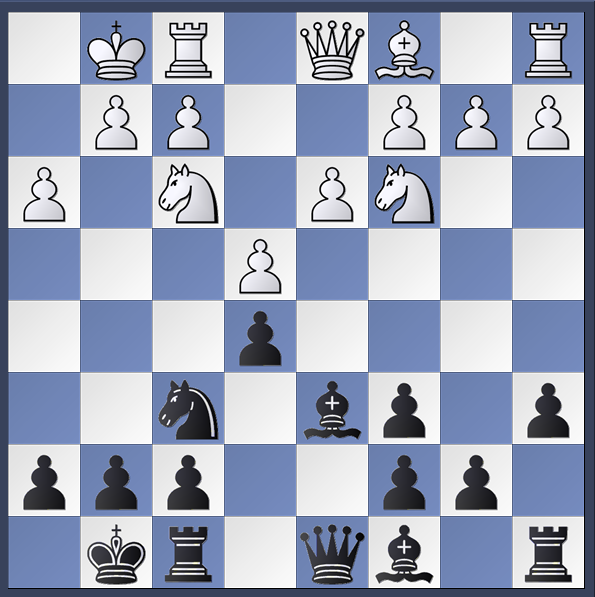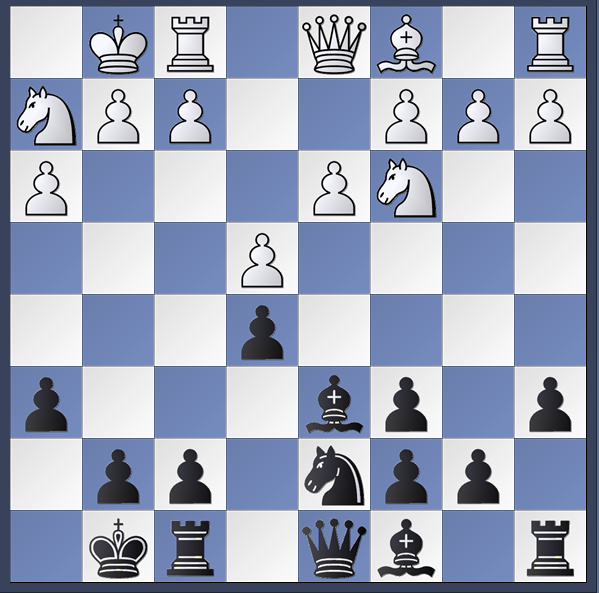I’ve done a lot of what I have decided to call ‘nodding along training’ in the past. By this I mean listening to or reading an explanation of something, whilst nodding inwardly and thinking “that makes sense” or “I understand that”. You may or may not be paying full attention to the explanation, but either way it’s not the most active form of training.
In my later years at secondary school, nodding along training was my main form of study for exams. I would listen to an explanation of a method or concept in a maths lesson, think I understood it, but frequently fail to prove my ‘understanding’ in the exam. Of course, the way to avoid this is to do plenty of practise exercises before the exam, to expose the areas you do not understand fully.
When it comes to chess, watching opening videos is a major form of nodding along training. (If you watch them in a comfortable chair and with a beer in your hand, it can even become ‘nodding off training’!) It is very easy to listen to Kasimdzhanov or Shirov explain the Nb1-d2-f1-g3 manouvre in the Giuoco Piano or Ruy Lopez and think that you have understood something profound about the game of chess. However, when you have the opportunity to employ this deep new understanding in your next competitive game, you often find that you were mistaken.
By way of an example, consider the position below:
 This is a position from my game against IM Alexandre Vuilleumier from the recent London Chess Classic. White has just played h3, and with very little thought I mirrored him with h6, thinking something along the lines of “h6 will always be a useful move, and I’ll decide on a plan next move”. White played Nh2, and I then decided to employ a plan which had been mentioned to me by my guest GM Tal Baron as playable in a similar position. I played Nd7, the idea being to go f6, Re8, and usually either Nf8-e6 or Nc5(-e6) depending on circumstances. This would have been an excellent idea on the previous move, but now that I have played h6, it makes very little sense to play f6, as the light squares around my king will be weak.
This is a position from my game against IM Alexandre Vuilleumier from the recent London Chess Classic. White has just played h3, and with very little thought I mirrored him with h6, thinking something along the lines of “h6 will always be a useful move, and I’ll decide on a plan next move”. White played Nh2, and I then decided to employ a plan which had been mentioned to me by my guest GM Tal Baron as playable in a similar position. I played Nd7, the idea being to go f6, Re8, and usually either Nf8-e6 or Nc5(-e6) depending on circumstances. This would have been an excellent idea on the previous move, but now that I have played h6, it makes very little sense to play f6, as the light squares around my king will be weak.
 My opponent immediately highlighted the potential weakness of the light squares with Qh5, and I was forced to abandon my plan halfway through and come up with another one.
My opponent immediately highlighted the potential weakness of the light squares with Qh5, and I was forced to abandon my plan halfway through and come up with another one.
So, how do we guard against ‘nodding along training’, and try to ensure we learn material well enough that we can usefully apply it in games? Here are some suggestions:
- Use material with built-in questions or tests. The ‘move by move’ series of books by Everyman is a good example of this, and some ChessBase DVDs also include questions nowadays.
- Ask yourself questions. If done properly, I can see this being even more effective than answering questions which are provided by others, as it makes you really think about the material. For example, you might ask yourself ‘Under what circumstances is Nd7/f6/Re8 a viable plan?’, ‘When would the knight go on to c5 and when would it go to f8?’ and ‘What are the indicators that this plan may be inadvisable?’ (One answer: ‘your pawn being on h6 rather than h7’).
- Play out positions against a partner or the computer. If you are studying an opening, you don’t necessarily have to play to the end, but playing some moves forces you to think and apply what you have learnt.
Have you been guilty of doing nodding along training yourself? Do you have any other ideas for combating it? Let me know in the comments sections below.
P.S. For those interested in seeing the conclusion of the game quoted above, here it is:
A very important issue in training/learning, great post!
I’ve certainly been guilty of this as well, and i’ve hardly seen it mentioned anywhere.
I think it goes back to learning being a feedback loop of addressing your current understanding, finding mistakes or improvements, and hammering them in until they’ve replaced your old view. I learned this from learning to play pieces of music and kinking out errors there.
A good practice probably is to ask yourself to try to explain the matter yourself, then you see where’re you’re at. maybe write it down to make sure it’s active,
Maybe writing down which material you actively engaged and how is an idea to combat this.
Thanks for the post, made this clearer to me as well!
I find that feedback loop process much more straightforward when it comes to music, because you are practising a specific passage with the aim of improving exactly that passage. With chess most positions where you make mistakes are not positions you will ever get again (exactly the same), so you have to try to learn something more generally applicable.
Some of my friends who teach chess have found that it has improved their own chess, I assume partly for the reason you give – that it forces them to explain concepts themselves, revealing their own understanding clearly.
Well put, and I think it’s exactly these kinds of observations that lead to real improvement in our playing strength. Concrete understanding of plans in different position types and what makes them viable (or not) is really what drives our middlegame success and sets us up for either success or failure. In addition to playing games, looking at a bunch of them (or at least several key ones) in a database program can be a big help in evaluating plans, even without a specific DVD lesson or live coach/trainer (for those lucky enough to have one).
Agreed – looking at high quality games in openings/structures you play is of course important, and I imagine that any insights you discovered for yourself this way would be more memorable than those you are just told about. Having said that, it is easy to miss the finer points when just playing through games without guidance.